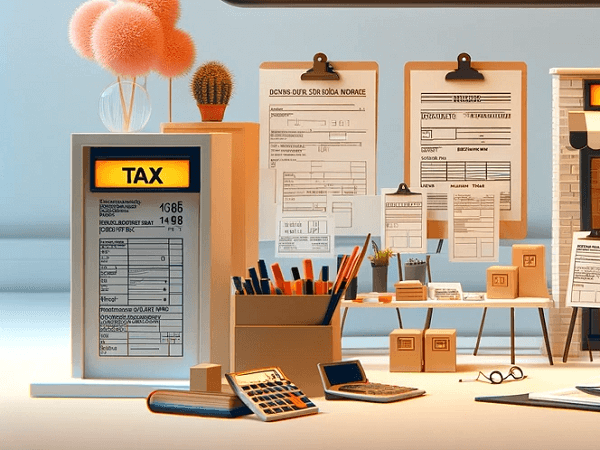Operating a business as a sole proprietorship comes with unique tax implications. From calculating business revenue and expenditures to understanding self-employment tax, it is essential for sole proprietors to be aware of these factors to ensure compliance with tax regulations and maximize deductions. Additionally, deductions for home office expenses and automobile usage can further impact the tax obligations of sole proprietors. By understanding these tax implications, sole proprietors can effectively manage their finances and minimize their tax liability.
Business Revenue and Expenditures
If you are a sole proprietor, reporting your business income is done through the standard Form 1040. However, to determine the profit or loss from your business activities, you must complete Schedule C. This schedule allows you to subtract the expenses incurred to generate your total revenue, such as materials, labor, and employee benefits. The resulting net profit is then reported on your Form 1040 and taxed as personal income. In the event of a loss, you may be eligible to deduct it from other sources of income. This distinction between business and employment income is crucial for sole proprietors to understand when managing their tax obligations.
Self-Employment Tax
Unlike employees who have Social Security and Medicare taxes deducted from their paychecks, sole proprietors are responsible for paying self-employment tax. This tax is calculated based on the profit reported on Schedule C. To determine the amount owed, sole proprietors must complete Schedule SE and include it with their tax filing. It is important for sole proprietors to factor in self-employment tax when planning their finances to ensure they meet their tax obligations accurately.
Home Office Deductions
For sole proprietors who operate their business from home, there are potential deductions available for the business use of their residence. By calculating the percentage of their home used for business purposes, sole proprietors can deduct a portion of expenses such as insurance, repairs, and utilities. This percentage is determined by comparing the square footage of the business area to the total living area of the house. Additionally, if there are expenses exclusively related to the business part of the home, such as painting a home office, sole proprietors can claim the full amount as a deduction. Understanding and utilizing these deductions can help sole proprietors reduce their taxable income and lower their overall tax liability.
Automobile Expenses
Many sole proprietors rely on their personal vehicles for business operations, making automobile expenses a deductible expense. Sole proprietors have the option to either track the miles driven for business and use the standard mileage rate provided in the Schedule C instructions, or claim the actual expenses incurred. If choosing the latter, sole proprietors can deduct the business portion of gas, repairs, maintenance, insurance, license plates, and leasing costs. To determine the business portion accurately, sole proprietors must keep a record of the miles driven for business purposes and calculate the percentage of total miles driven in a year. By taking advantage of these deductions, sole proprietors can effectively manage their transportation expenses and reduce their tax liability.
In conclusion, understanding the tax implications for a sole proprietorship is crucial for managing finances and minimizing tax liability. By accurately reporting business revenue and expenditures, calculating self-employment tax, utilizing deductions for home office expenses, and tracking automobile usage, sole proprietors can ensure compliance with tax regulations and maximize their deductions. Being aware of these tax implications allows sole proprietors to make informed financial decisions and effectively manage their business operations.


